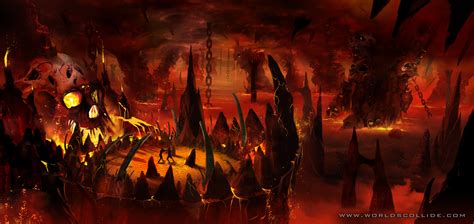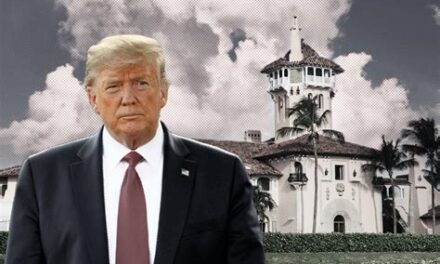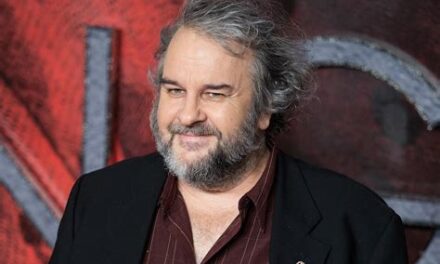There were many controversial pronouncements made at the Synod on the Family, but it was the “what-would-Jesus-do” comment made by Cardinal Wuerl afterward that really got my attention.
In an Oct. 25 interview with Religion News Service, the cardinal was asked about the final document’s lack of specific recommendations regarding how bishops and priests should change their pastoral care of certain people, such as active homosexuals and divorced Catholics, for example, by allowing them to receive Communion.
Cardinal Wuerl answered,
“The frame of reference now is no longer the Code of Canon Law. The frame of reference is now going to be, ‘What does the gospel really say here?’ But I think the Holy Father has a whole range of opportunities before him. I think we just have to wait and see what he chooses.”
I don’t think I was the only reader of the cardinal’s response who found it classically Protestant.
Wuerl’s answer could be fairly unpacked this way: Catholics should not first look to the Code of Canon Law on guidance on how to regard homosexuality, homosexual acts, the sacrament of marriage, divorce, or annulment. Rather, Catholics should first consider the Gospels to figure out what to think about these now controversial moral matters, as well as the sacrament of marriage.
I could describe my reaction to this in two ways, first, as being baffled, like Alice in Wonderland, or, second, of being betrayed. I spent ten years reading and praying my way into the Catholic Church before being received at age 34. Central to that journey was the affirmation that the Church drew its teaching from both Scripture and Tradition, rather than the sola scriptura espoused by the Reformers.
Tradition itself, I learned, grew organically out of Scripture, the revealed Word of God, providing the faithful with a reliable guide to answer the question posed by Cardinal Wuerl, “What does the gospel really say here?”
I had been raised Presbyterian, became a Southern Baptist in college, and attended Princeton Theological Seminary before becoming a Baptist minister in Atlanta. My journey was not merely intellectual but was provoked, in part, by experiences in a Christian denomination that sought to draw its teaching from the immediacy of Biblical encounter, with a minimal amount of mediation sought from either theology or philosophy. Biblical interpretation and Biblical theology were encouraged, but systematic theology, philosophical theology, or even apologetics were viewed as veering away from the Word.*
I had already read various comments during the Synod about Catholics putting too much emphasis on doctrine. During a press conference after the second day, Archbishop Durocher answered a question about possible changes to the reception of the Eucharist by divorced Catholics by saying,
“Let’s be honest. Is that a question of doctrine or is that a question of discipline? I think that’s probably going to be one of the questions that will be debated in the small groups. . . . If you want doctrine, go read Denzinger.”
“Denzinger” refers to the The Sources of Catholic Dogma first published in 1854 by Heinrich Joseph Dominicus Denzinger (1819-1883), continuously updated ever since, becoming the accepted research guide to the development of Catholic doctrine. Archbishop Durocher’s comment was clearly dismissive and was taken as such.
I assume this is not what Pope Francis himself meant when he said at the opening session that the Church should not be a “museum of memories.” It’s impossible, at least in my mind, to viewing Tradition as something arising from the past into the present and moving towards the future. If fixed doctrine means a concept that has not changed over many centuries — “We believe in one God” — then it has something of a “museum” quality about it.
But, if Cardinal Wuerl has accurately represented the substance of the Synod’s discussions and direction the Holy Father is taking the Church then this question arises in my mind: Are we heading towards a Catholic Church without Hell?
This may seem a large leap, and perhaps it is, but consider the following points. Up for discussion at the Synod were two kinds of mortal sin, homosexual acts and the taking of Communion while being married outside the Church.
Mortal sins, of course, are those “grave matters” committed with full knowledge, both of the sin and of the gravity of the offense, and committed with deliberate and complete consent, enough for it to have been a personal decision to commit the sin (#1859 Catechism of the Catholic Church). If a mortal sin is not forgiven, the Church teaches a person will be condemned to Hell after death (#1033 CCC).
Being barred from receiving the Eucharist while in a state of mortal sin (#1457 CCC) is a prefigurement of the Hell that awaits the unrepentant, unforgiven mortal sinner.
Orthodox Catholics often say that fundamental Church doctrine cannot be changed, even by a pontiff. Thus, they would argue, whatever the huffing and puffing of the recent Synod, and whatever Pope Francis may write as a consequence, homosexual acts and marrying outside the Church will remain mortal sins, as least according to Denziger, the Catechism, and the Code of Canon Law!
Yet, after the Synod, there was also the widespread comment that pastoral care had already de facto removed homosexual acts and marriage outside the Church from classification as mortal sin. (I’m sure this is an exaggeration but assume it applies to many dioceses around the world, especially in Europe.)
As I see it, the present situation is this:
–There are Church “regions” where what the Church officially teaches as mortal sin is not treated as mortal sin in the name of “pastoral care.”
–In those regions, the belief of being separated from God by mortal sin, and facing the threat of Hell, is being replaced de facto by the view of an All-Loving God Whose Love cannot be confined to doctrinal strictures, such as the “intrinsic evil” of homosexual acts. The Cardinals from these regions were those who attempted to use the Synod to codify their practices.
–The cardinals from the Church’s other regions, especially Africa, defended the Church’s teaching and practice, while agreeing that pastoral care should never be withheld from anyone, regardless of the gravity of sin.
–As a result of what I’ve described, the Catholic Church is facing the possibility of a schism. The movement towards schism has been in the making for quite a long time, but the election of Pope Francis allowed the long-held frenzied hatred for John Paul II and Benedict XVI among bishops and Cardinals to find an institutional outlet.
The possible schism itself can be described in the distinction drawn by Cardinal Wuerl between consulting the Code of Canon Law and the Gospels. In other words, some regions of the Church may simply admit they’ve decided to jettison certain uncomfortable portions of Catholic doctrine and become Protestant.
Other regions may not announce any formal break with the Roman Church but pursue and recommend pastoral practices that ignore moral teaching of the Church, especially regarding sex and marriage. This will very likely also include the ordination of women and removing the ban against contraception. (After all, we know that if Jesus lived in the 21st century he would have recognized the injustice of excluding women from the priesthood and view over-population as the primary source of global warming!)
Are we heading towards a Catholic Church without Hell? The true Catholic Church will always teach there is a Hell, because not to do so would be to strip the human person of the imago Dei, the free will impressed into his nature by God at creation. But the ersatz church, which is on the rise in Europe and some parts of the Americas, will find that Hell no longer matters to persons whose moral acts cannot separate them from the love of God.
Evangelical Protestants, of course, still believe in Hell. Thus, it’s important to point out that the Protestant gesture heard in Wuerl’s comment did not posit any specific content, but was a distancing from strict adherence to the “rule books” such as the Code of Canon Law and, presumably, the Catechism of the Catholic Church.
As I said, a schism in the Catholic Church can be avoided, but if not confronted head-on the present situation will eventually cause the Church to splinter. It’s a decisive moment for the people of God who must exert their proper leadership by making their voices heard.
I believe in the good intentions of Pope Francis but fear that he has unwittingly let the Protestant genie out of the bottle, and only with our help, and guided by the Holy Spirit, can the slippery rascal be put back in.
*My conversion memoir, An American Conversion: One’s Man’s Search for Truth and Beauty in a Time of Crisis, was published in 2003.














I didn’t read your entire argument so this may be a bit arrogant-but I was put off by your defense of and reliance on ‘Cannon Law’ I never researched it, don’t care to, You sound scared….if your faith that weak? Not your knowledge-your faith…… As a life long Catholic who only really participated in the church after becoming sober 31 years ago…my experience is that there is more meaning and faith in rooms filled with people talking in plain language about God, and being honest with and about themselves….not the ‘written instructions’ from Rome. Maybe folks like me who have been given the gift of sobriety have the real blessing, we don’t need rules to fulfill so hopefully God saves us from Hell….God already has. We know on a daily basis that God loves us. We also know that no matter what our faults, if we are not drinking we are still in touch with Him. Trust me when I say that irregardless of your ‘studies’ about the rules…that Pope Francis is right…get over them-not lost in them…God is alive, real, and present…until you see that…all else is just ‘fluff’ Feel free to worry about Hell…I’m going to try and live in love-not judgment…..I’m not qqualified. You probably won’t get this unless you have had a similar life shattering experience-a ‘bottom’ that only God can help you out of……,that’s not a judgment-just my opinion based on my experience. But please do keep in mind that maybe there are multiple ways to God than one set of rules….. I believe that is what Francis is trying to get at. Now if you believe that the selection of Francis as Pope was inspiration of the Holy Spirit (isn’t that according to the church). Then maybe Jesus is trying to tell us something…..like put down the rulebook and look around…quit keeping score and help!
Joseph, while some of your statement rings true you seem to be of the Cafeteria design, “picking and choosing” which “part” of Catholicism you would like to follow. God is alive, real and present, and that would be in the Eucharist, he meets us there, body, soul and divinity. Being ignorant of your “own” faith, is disappointing. Not “knowing” or caring to research your “own” faith, is nothing short of laziness and perpetuates the ignorance that we see surrounding many people who blame their own shortcomings on the church and it’s catechesis. The “rules” you seem quick to rale against were INSTITUTED BY and handed down by none other than Holy Mother Church and her successors to the throne of St. Peter, the first Pope as directed by Christ himself. So, be careful, those rules are there FOR YOU and I, and for the assurances of her longevity, sanctitym both in the world and future.
Props on 31 years of sobriety!
I think you’re right. If canon law does not look like Jesus there’s probably something wrong with canon law, not with Jesus.
You are correct about one thing–you have an innate arrogance devoid of reason.
The Ten Commandments are the basis of Cannon Law and Catholic Catechism. If you find such teachings trite, perhaps you are not really a Catholic at all.
It’s clear that you seek a feel good faith devoid of any judgement whatsoever.
Murder, abortion, adultery–should we automatically overlook such behaviors so as to avoid judging these actions as morally offensive and hurtful of innocent parties? Is everything relative because Pope Francis has created such doubt by saying things like “Who am I to judge?”
Of course, in this life, we must make judgments about the appropriate behavior of individuals–otherwise, we would have chaos.
But none of us has the power–or even the ability–to judge a person’s soul. That is the domain of our Heavenly Father. And He is the one who decides whether or not we attain heaven or hell–not you, not Cardinal Wuerl, not even Pope Francis.
BTW, I prayed to the Holy Spirit as I was replying to your comments. The Holy Spirit guides all the faithful–not just the priests and bishops.
PS Very happy for your sobriety. Curious, did you follow the recovery steps encouraged by Alcoholics Anonymous?
The commenter’s statement is an act of hubris that proves Dr. Hudson’s point. He, like a lot of liberal Catholics, seem to embrace the Protestant idea of imputed grace and reject the Catholic view that grace is infused and can be lost. Protestants by and large believe that once a believer is saved he/she always is saved and that Christ’s righteousness covers our unrighteousness.
Traditional Catholics need to confront the erroneous ideas about grace that have become popular among Modernist and liberal Catholics. The fact is that millions of Catholics in the West have become Protestants and don’t realize that they have. Maybe a schism might be a good thing in the long run, kind of like Jesus’s parable about the vine and the branches. Those that don’t bear fruit need to be cut off and burned to keep the vine from being killed.
“I spent ten years reading and praying my way into the Catholic Church before being received at age 34.”
Really?
We should never, ever, suggest we know what is in someone’s heart
What about Hitler? Can we not make some assumptions about what was in his heart?
It’s pretty clear that Hitler harbored immense evil in his heart and a hatred for our Heavenly father.
Why are so many religious carried away with the notion that we cannot make judgments about the behavior of others. Why, then, did God give us the ability to think and reason?
As a fellow Protestant convert, I can say that it takes a lot of soul searching to become a Catholic. Dr. Hudson likely wrestled with hard teachings of the Catholic Church like praying to saints, Mariology, infused vs. imputed grace, the Real Presence in the Eucharist, and a lot of other issues.
Protestants become Catholics for intellectual reasons unlike Catholics who leave for emotional ones.
Very astute observation!
(Full-disclosure: I’m a protestant that believes in universal reconciliation and fascinated by the faith of my friends across the Tiber.)
So the way I’m reading the Cardinal’s words are not, “let’s adopt the Protestant idea of sola scriptura,” but rather “let’s adopt an idea that transcends the Protestant/Catholic divide: sola Christi.”
The way Protestants have read the bible (and fwiw, Catholics have been trapped in the same hermeneutic) has placed scripture at or above the divine person of Jesus it reveals. I don’t think the Cardinal is trying to make the same mistake. (i.e. the bible as paper pope), rather he’s suggesting that Jesus is the head of the church and his authority supercedes Canon law.
So that’s not a Protestant idea, but as a Protestant, I wish it were. 🙂
Peace be with you, Deal.
But what does that really mean–that every generation can reinterpret the meaning of Christ–as if there are no intrinsic truths?
Well those are two different things, aren’t they? Yes, every generation can and indeed does reinterpret the meaning of Jesus. That is not to say that we throw out the thoughts of our fathers. On the contrary, we invite them into the conversation. We value their input and contest it with great caution. That said, sometimes we throw out their input as sometimes it is indeed contrary to the way of Jesus as revealed in the gospels and understood by successive generations.
As to the second thing, are there intrinisc truths? I’m modernist enough to say “yes.” Can we know them intrinsicly? I’m post-modernist enough to say “no.” That’s not to say we can’t know them at all, but that we should hold our epistemology with some humility.
Grace to you, Don.
It seems that you may be correct about a coming schism. Let’s pray seriously that this does not happen.
Thank you, Dr. Hudson for raising the issue. It is something to seriously think about.
I searched for the theologian “von Bathasar” in this article; he was von Bathasar, reportedly one of John Paul’s and Benedict’s favorite theologians.
Von Bathasar believes that the New Testament contains two irreconcilable series of statements about redemption:
The first series speaks of individuals being condemned to eternal torment. Those who have rejected Christ are accountable for their actions and they will be cast into “the outer darkness,” or “the eternal fire prepared for the devil and his angels” (Mt 25:30ff.; see also Mt 5:22,29; 8:12; 10:28; 2 Pet 2:4-10; 3:7; Rev 19:20f.). The second series of texts speaks of God’s desire, and ability, to save all mankind. “God our Savior…desires all men to be saved and to come to the knowledge of the truth” (1 Tim 2:4). Anticipating his suffering and death, Jesus proclaims, “Now is the judgment of this world,…when I am lifted up from the earth, I will draw all men to myself” (Jn 12:31). “God has consigned all men to disobedience that he may have mercy upon all” (Rom 11:32; see also 2 Pet 3:9; Titus 2:11; Rom 5:14-21; Eph 1:10; Col 1:20).
God loves all men and all creatures, inasmuch as he wishes them all some good, but he does not wish every good to them all. So far, therefore, as He does not wish this particular good– namely, eternal life–He is said to hate, that is to reprobate some men (ST I q 23 a 3 ad 1.))
Aquinas believed in the former — essentially predestination — since God Knew us before we were in the womb:
Von Bathasar believes in the latter, universalism, the tenet that we are all saved — or at least he thinks we should all hope for it — because the post-Good Friday Christ taught exactly that and he did not mention his earlier “teeth gnashing in Gehenna” phase.
In other words, He could only see as a man while he was here — it took the Resurrection and death for Christ to understand the redemptive value of God.
This makes sense too because one of the Seven Last Words “My God, My God why have you foresaken me” seems to contradict Christ’s declaration, during His ministry, that despair is the only sin that couldn’t be forgiven. “My God, My God” sounds an awful lot like despair.
This also helped me understand his words to the thief who repented on his cross next to Christ at Calvary “This day, you shall be with me before my Father in Heaven.” The other thief, the one who mocked Christ though, wasn’t out of options. Even after death, von Balthasar would have it I think that that thief would have another chance, and another, and another (at least the “seven times seventy” number of times a person should forgive another here on Earth.) And it would be pretty hard to deny God after death when He is standing before you. As stubborn as anyone might be, the proof would be right there.
The last is why I whispered into my brother’s ear some years ago, the last day before he died, as he slipped into a coma, “Just make sure to say you believe, when you get asked, because it will count then. But what do I know maybe you’ll get another chance then.”
Our Lord was quoting Psalm 21 when He said: “My God, my God, why have You forsaken me?”
The article describes as a future scenario what in fact already exists for two generations. I have not heard any serious warning of the Church against mortal sin after Vatican II, except the Encyclical Humanae Vitae of Paul VI. After Humanae Vitae. Neither John Paul II nor Benedict XVI were orthodox Catholics and both of them fostered a humanist based ecumenism. Doctrine in the Catholic Church is a dead letter for the most part and there’s little chance it will ever be restored. Serious Catholics today belong to the various alternative traditionalist groups, like the SSPX, not to the post-Vatican II Church.